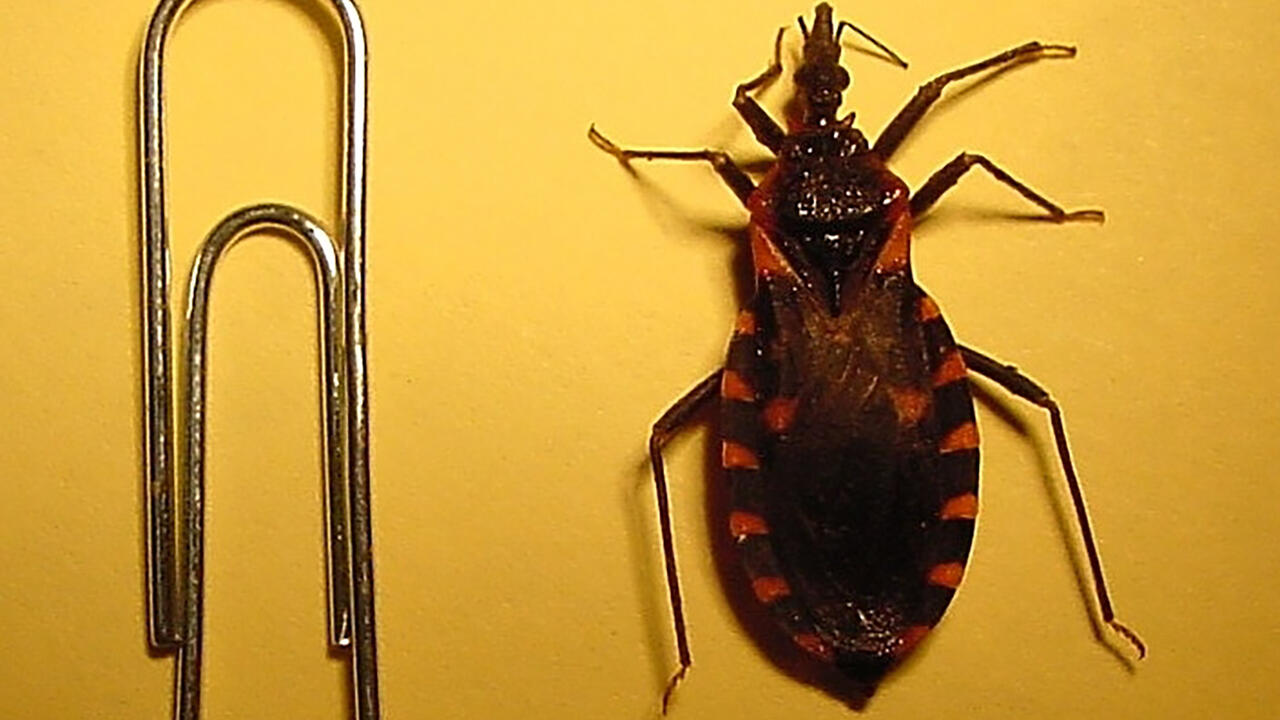RAYMOND, Miss. -- Triatomine insects are not new to the United States, but they’ve recently gotten a lot of attention because of their ability to transmit a rare, but serious disease.
Commonly called kissing bugs because they sometimes bite humans on their faces while they sleep, these blood-sucking insects can carry a parasite that infects wildlife, domestic pets and humans with Chagas’ disease.
Jerome Goddard, a medical entomologist with the Mississippi State University Extension Service, said the bugs have been found throughout the southern United States for many years, but are most common throughout Mexico, Central America and South America. They feed on various mammals, including opossums, racoons, dogs, cats and sometimes humans.
“The reason these bugs are important, and especially lately, is because there has been an increase in cases of Chagas’ disease in the U.S.,” Goddard said. “It’s not an epidemic by any means. There have been 29 cases diagnosed in the U.S. since 2000. That’s not a lot, but it is something to be concerned about and pay attention to because you could get really sick if you become infected.”
The U.S. Centers for Disease Control and Prevention recently classified Chagas’ disease as endemic to the U.S. By noting its presence in the country, scientists hope surveillance, research and public health responses can improve. According to the CDC, locally contracted infections have been reported in eight states, including Mississippi.
Triatomine insects become infected with the parasite, named Trypanosoma cruzi, when they feed on animals that carry the parasite. They then may transmit the parasite to other animals and humans through their feces.
“When they bite you, they poop a little bit. Then, you scratch or rub the bite, and you get their excrement in that bite or into your eyes, mouth or nose,” Goddard said. “Another way you can get it is by eating produce that is contaminated with their droppings.”
Early stages of Chagas’ disease have mild or no symptoms, but left untreated, it can progress in some individuals to a chronic infection that can cause serious heart and digestive issues that can be life-threatening.
Goddard said turning off outdoor lights at night and removing stacks of wood or lumber that are too near the house can help deter triatomine insects from getting inside.
“They will come to lights left on outside, so turn those off,” Goddard said. “They love wood piles. Don’t have a wood pile or a pile of wood planks on your porch. The only times I’ve ever found them at a house, they were in boards stacked up by the house. They love that kind of thing. Get rid of that kind of clutter.”
Goddard said hiring a professional pest control company to spray a perimeter around a home once a quarter is another option to help manage any triatomine insects that may be around a home.
Several species of triatomine insects are present in the U.S., but they all look similar. They are either black or dark brown with red, orange or yellow markings around the edge of their bodies that look like stripes. They have a cone-shaped head, thin legs and thin antennae. They bite at night or at dusk, and their bite is not generally painful.
For more information about Chagas’ disease, visit the Mississippi State Department of Health and the CDC websites at https://tinyurl.com/bdamfe8p and https://tinyurl.com/3rpx9psj.
Contacts
-
 Extension Professor
Extension Professor
